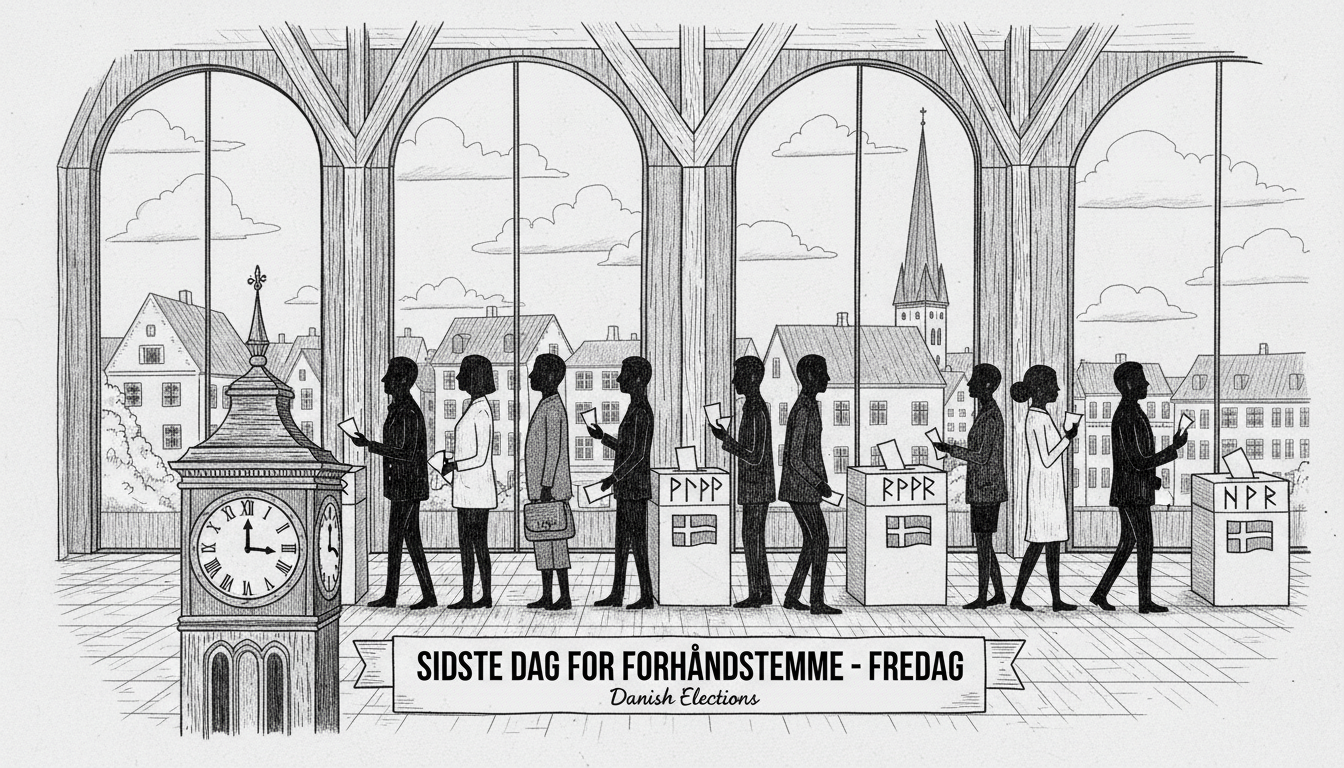Danish voters have until Friday to cast their advance ballots for the upcoming municipal and regional council elections. Voting locations across all municipalities will remain open from 9:00 AM to 4:00 PM for this final opportunity.
Voters can submit advance ballots in any municipality, not just their own residential area. Most municipalities operate voting stations through citizen service centers, while some also offer library locations. Voters simply need to appear in person at designated locations where municipal staff will assist with the process. Valid identification remains mandatory for all voters.
The convenience of advance voting attracts diverse groups. Some voters choose this option due to work commitments on election day, while others prefer controlling their voting schedule. This trend shows consistent growth, mirroring patterns from recent local elections.
During the 2021 municipal elections, Denmark witnessed record-breaking advance voting numbers. Approximately 10.13 percent of all submitted votes came through advance ballots according to University of Copenhagen's Center for Elections and Parties. Researchers attributed this surge primarily to COVID-19 concerns. Overall voter turnout that year dropped nearly four percentage points to 67.2 percent compared to the 2017 municipal elections.
Roger Buch, municipal researcher and center leader at Denmark's Media and Journalism School, highlights potential social consequences. He notes that increasing advance voting might diminish community aspects of the electoral experience. Buch previously stated that municipalities actively work to simplify voting procedures and promote advance options, but this approach risks overlooking elections' communal nature. He argues that election day queues themselves symbolize democratic participation's importance.
The shift toward advance voting reflects broader changes in democratic engagement. While making voting more accessible clearly benefits participation rates, the traditional election day experience holds cultural significance. Many Danish families treat voting as a shared activity, particularly parents introducing children to democratic processes. Losing these moments could impact how future generations perceive civic responsibility.
Election officials continue balancing convenience with community preservation. The current system allows voting flexibility while maintaining election day's symbolic importance. As advance voting grows more popular, observers will monitor whether higher convenience translates to sustained engagement or merely redistributes voting timing.
Danish advance voting procedures remain among Europe's most accessible systems. The cross-municipality flexibility particularly benefits commuters and travelers. This approach demonstrates Denmark's commitment to removing voting barriers while maintaining electoral integrity through mandatory identification checks.

